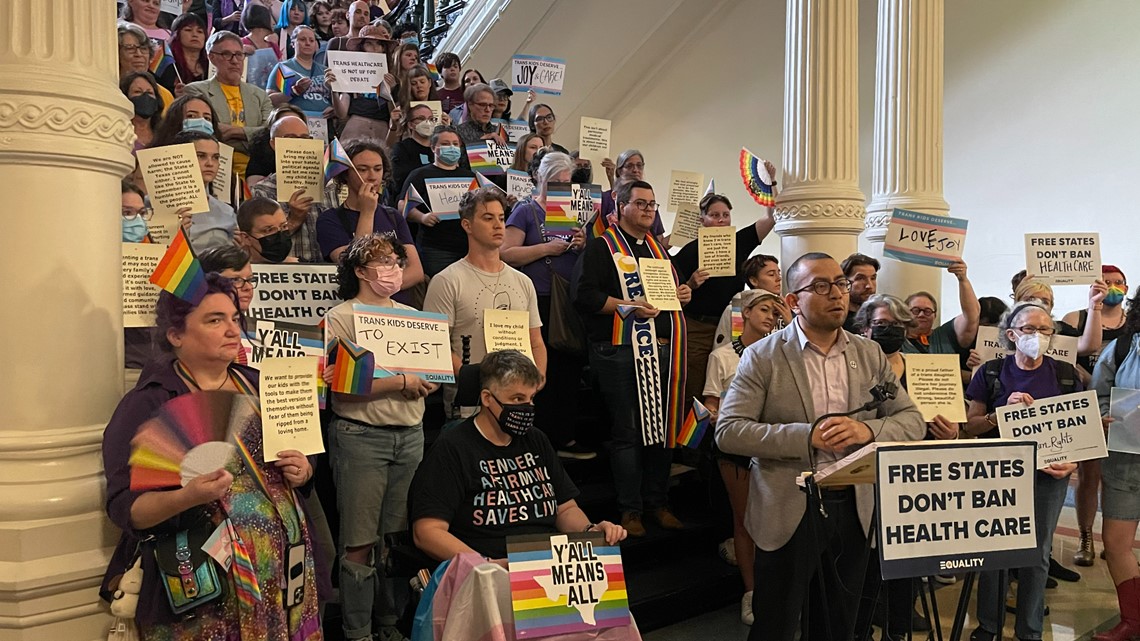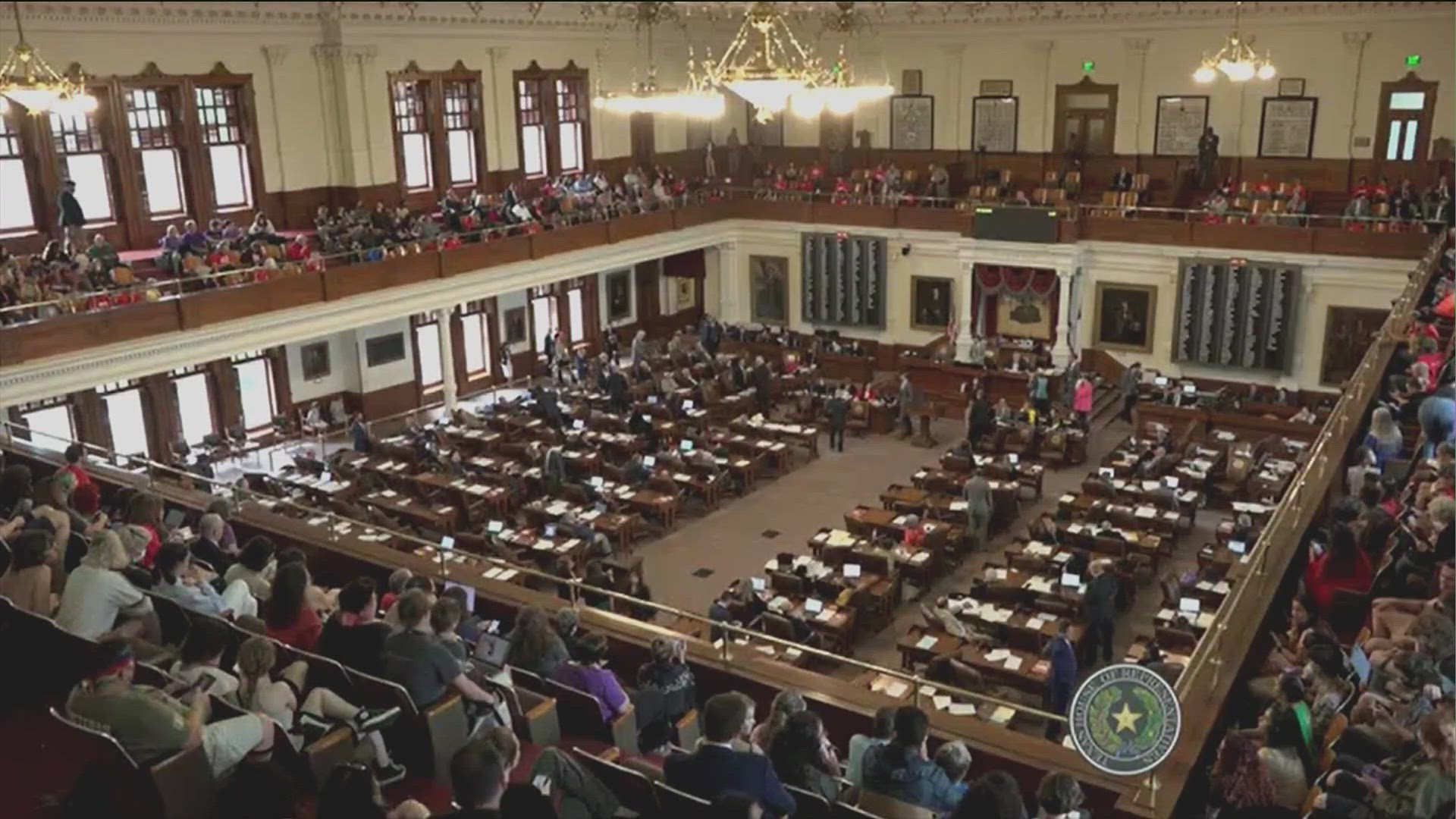AUSTIN, Texas — The Texas House of Representatives approved initial passage of the controversial Senate Bill 14 Friday night after it was taken up for the third time this session.
The bill was granted initial passage on a final vote of 92 ayes and 28 nays. A final vote on the bill will likely take place Monday.
The bill had previously been delayed twice by House Democrats after they called points of order over the bill's language.
The bill would ban doctors from treating transgender youth with hormone therapies and puberty blockers and would also prohibit minors from getting transition-related surgeries. Under the bill, any minors already receiving this type of care would have to be weaned off in what is said to be a medically appropriate manner.
At the start of the day Friday, protestors against the bill and anti-LGBTQ+ laws in general gathered outside the House chamber. Speakers ranging from advocates to state representatives shared why they feel this bill would be detrimental to transgender youth.


The gallery of the House chamber was filled with people on both sides of the issue.
State Rep. Tom Oliverson (R-Cypress) kicked off the reading of SB 14 with some words about his concerns over what treatments for transgender children in Texas would mean for their health. He claims there is no scientific evidence that these treatments help children overcome gender dysphoria and said a bill like this is meant to protect children.
He noted that other countries are moving away from these “dangerous” treatments and that the U.S. has plenty of medical offices continuing on the route of offering this type of care.
At around 2:33 p.m., just after the bill was brought up, the first point of order was raised by State Rep. Erin Zwiener (D-Driftwood). House Speaker Dade Phelan announced this point of order has since been withdrawn.
A second point of order was raised at 2:53 p.m. by State Rep. Chris Turner (D-Grand Prairie). At 3:09 p.m., Turner's point was withdrawn.
Soon after, State Rep. Julie Johnson asked Rep. Oliverson about exceptions for puberty blocking for children who have some medical conditions that relate to hormone production. Oliverson said he is not banning the use of these medications in scenarios that he says are for restoration of normal human development – which he defines as things like physical abnormalities in relation to hormone production – not for children who he describes as having a mental condition, such as gender dysphoria.
Oliverson also said this bill is not about parents – it’s about medical physicians and practices. To that, Johnson said there are plenty of physicians who would disagree with him on the need for these types of treatments for transgender youth.
Another factor in this bill relates to transgender youth who are already currently taking puberty blockers and undergoing hormone therapies.
Oliverson explained that weaning of these medications doesn’t have good guidance but said they established provisions that if a child meets certain criteria, for example, if a child has been on one of these medications for a period of time, there is an off ramp that these children to be weaned off in a "medically appropriate" way.
Johnson said to remove these patients off these treatments abruptly would be medically inappropriate, to which Oliverson said there would be some concern with that.
State Rep. Ann Johnson then took to the podium to question Oliverson on SB 14. She said 2,401 people were against this bill when they allowed testimony and 84 were for it, stating that many of the people for it were also outside of the State of Texas. Rep. Oliverson responded that they were national experts lawmakers invited.
State Rep. Mary Gonzalez spoke against the bill, saying mental health issues from LGBTQ+ youth often stem from anti-LGBTQ+ legislation being pushed through. She has successfully raised points of orders that have send this bill back to committee twice.
She noted how long it takes for these children to actually be approved for these treatments and said this is not an overnight process. In her testimony, she also said this legislation is a violation of the Equal Protection Clause and that it is discriminating against a specific group in their health care needs.
Seven different amendments were brought up for the bill, with only one of them being added, coming from Oliverson.
The adding of the amendment means the bill must go back to the Senate before it can reach Gov. Greg Abbott's desk.

